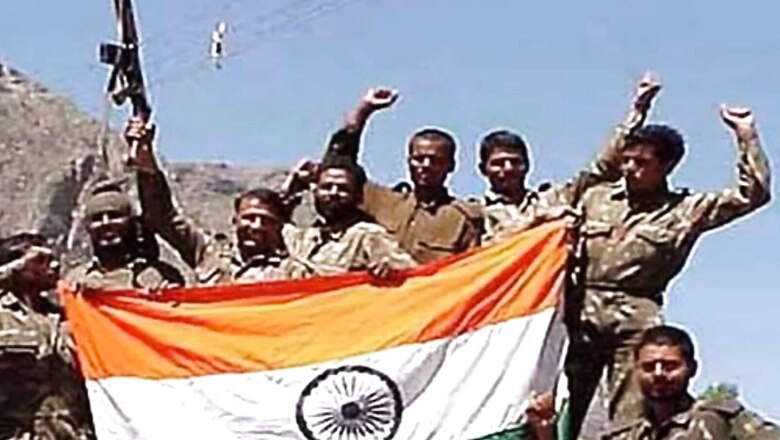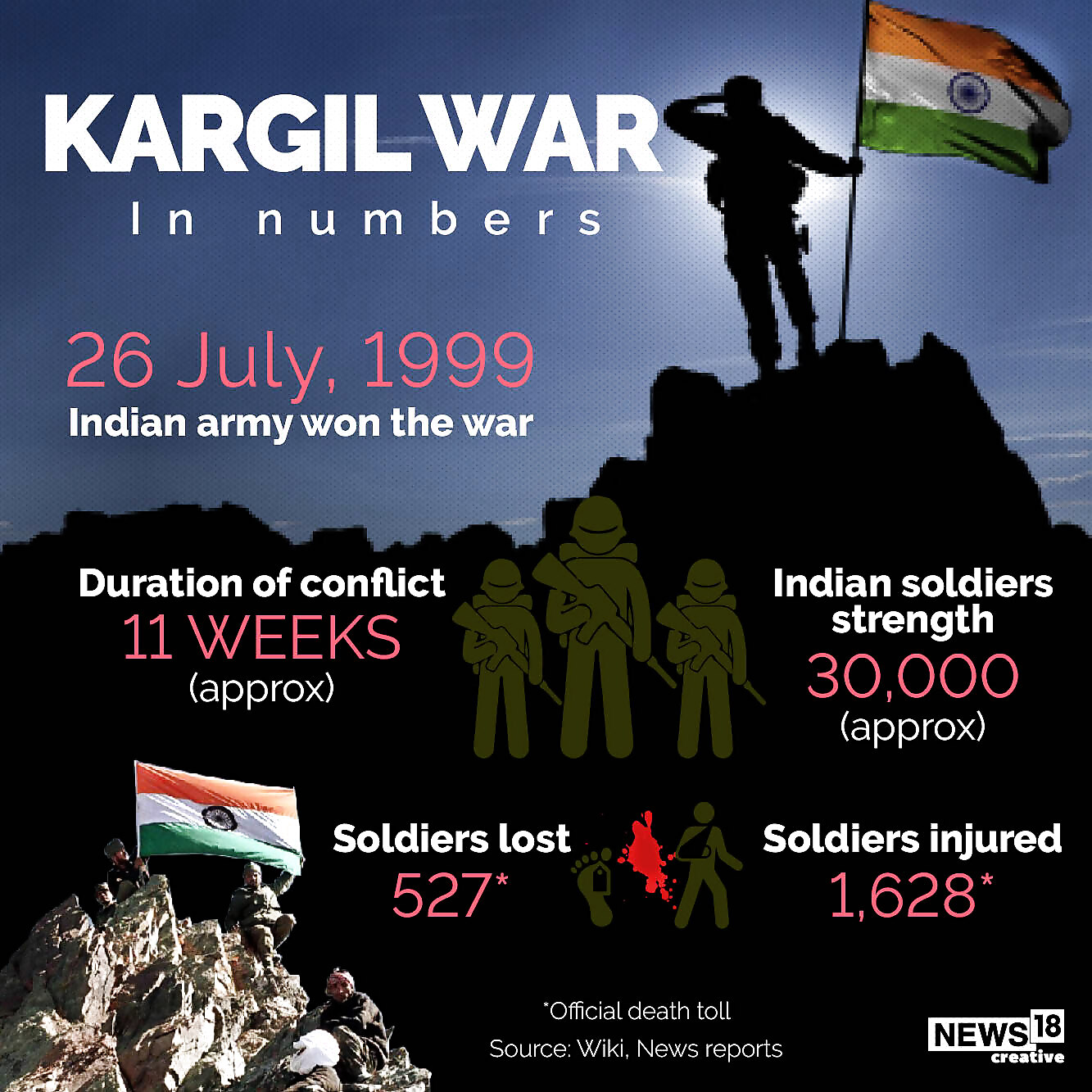
views
The year 1999 marks a watershed in India-Pakistan relations.
Having detonated nuclear bombs in May 1998, both the countries had attained nuclear status and thus an unprecedented change in the domain of deterrence and nuclear power play emerged.
Pakistan, which was still reeling under the traumatic loss of the 1971 war, probably found these nuclear weapons an assured guarantee of its security, as the world ecosystem was conscious of avoiding a nuclear war anywhere in the world, almost at any cost.
Having assessed the security situation favourably, the Pakistan military establishment captured a large chunk of Indian territories across a wide swathe of the Line of Control (LoC) without firing a single shot. From an operational point of view, it was a masterstroke.
An action apparently taken without the approval of the civilian government in power and only with a handful top officers of the Army in the know, this adventure did not have any major chance of success, that too against India, which had a substantial quantitative and qualitative superiority in the conventional domain.
But the way the conflict unfolded leaves much to be answered, especially on the Indian side. How did we let the Pakistani forces encroach upon our territories without our intelligence getting any wind of it? Was it because our political and military leaderships took Pakistan’s peace overtures too seriously? And, did India do the right thing by confining the conflict to Kargil, which meant the Indian troops fought the Pakistani troops holding up higher terrains and thus greater advantage over the Indians?
What happened in terms of defining victory in Kargil will be analysed in the succeeding paragraphs. While celebrating the bravery and sacrifices of our soldiers in the face of adversity at Kargil, it is also time to look at some of the inconvenient questions that came up during and after the war.

INDIAN ARMY’s VALOUR
The Kargil war stands out as an account of raw courage, grit and valour of Indian officers and soldiers, especially those of the younger age profile, fighting in adverse terrain and weather conditions, given the absence of adequate information about enemy dispositions. The tenets of mountain warfare dictate a predominance of manpower against the defender and here, in a terrain with no shelter or cover, daylight assaults were conducted without fear. Cliff assaults on slopes with inclination of more than 80 degrees were undertaken, operations were conducted and posts were regained. Most of these operations were undertaken hurriedly against an enemy that enjoyed a comfortable defensive position and a clear field of view and fire.
These situations, where a stone’s throw from the enemy had much more potency and lethality than a bullet, demanded the ultimate courage and sacrifice to persist with the mission and win against the enemy, who was reasonably well-entrenched and stocked fully with ration and ammunition.
It is to the sole credit of the Indian Army that this war resulted in Indian positions being re-captured. Whenever the history of mountain warfare or hand-to-hand combat is analysed, the exploits of Indian Army in Kargil will stand out in times to come.
LESSONS TO LEARN
There is a line of argument that says that India should have opened a new life of offence, so as to push Pakistan to pull back it soldiers. Had the government of the day taken that position, we would not have lost so many young lives in Kargil. But then it came with the obvious risk of a full-scale warfare.
The other point we tend to ignore or forget is that there was complete intelligence failure on our part. First, we failed to get any information on the sinister designs of the Pakistan Army to encroach upon India’s territories. We failed to get any information about Pakistani intentions and likely actions before the conflict. Even when the initial information was received on May 3 1999, we remained clueless about the scale and extent of Pakistan’s infiltration.
Even before the exact nature of enemy threat was known, probe and attack operations in the mountainous terrain, without adequate intelligence or operational inputs, were launched, parallel to the large-scale mobilisation of troops. This approach resulted in heavy initial losses on the Indian side, despite overall superiority in numbers. The situation turned favourable much later, when the capture of Tiger Hill initiated a set of dominos that started tumbling in India’s favour.
Our soldiers who gave us victory at Kargil, despite so many initial mistakes and hiccups, deserve applause. It was their absolute commitment and supreme sacrifice that ensured India did not lose any territory that time. It was their shaurya and parakram that saved the day for India.
We, as a nation, should look at the mistakes we made at that time — from massive intelligence failures to not-so-smart tactical decisions. If we brush these mistakes under the carpet and just celebrate the day as Kargil Vijay Diwas, we might be committing a big mistake. As the saying goes, those who don’t learn from their mistakes are doomed to repeat them. Also, course-correction would be the best tribute to our brave soldiers who sacrificed their lives for the security and integrity of their motherland.
The writer is a retired army veteran. Views expressed are personal.
Read all the Latest News and Breaking News here




















Comments
0 comment